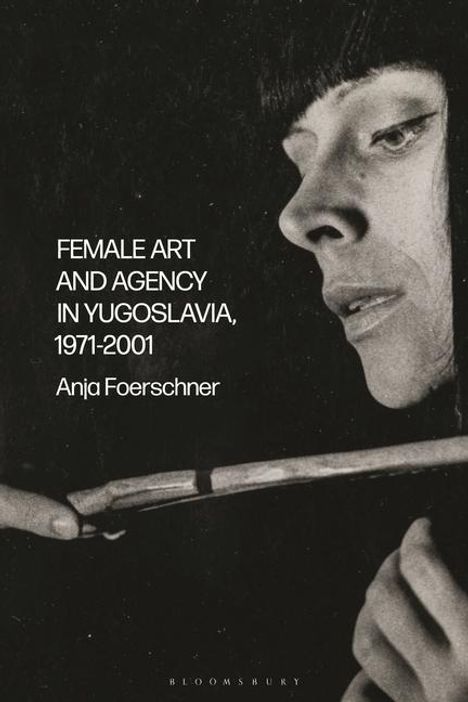Anja Foerschner: Female Art and Agency in Yugoslavia, 1971-2001, Kartoniert / Broschiert
Female Art and Agency in Yugoslavia, 1971-2001
Sie können den Titel schon jetzt bestellen. Versand an Sie erfolgt gleich nach Verfügbarkeit.
- Verlag:
- Bloomsbury Academic, 12/2025
- Einband:
- Kartoniert / Broschiert
- Sprache:
- Englisch
- ISBN-13:
- 9781350229259
- Artikelnummer:
- 12145610
- Umfang:
- 202 Seiten
- Gewicht:
- 454 g
- Maße:
- 234 x 156 mm
- Stärke:
- 25 mm
- Erscheinungstermin:
- 11.12.2025
- Hinweis
-
Achtung: Artikel ist nicht in deutscher Sprache!
Weitere Ausgaben von Female Art and Agency in Yugoslavia, 1971-2001 |
Preis |
|---|
Klappentext
"Despite having become marginalized on the map of contemporary art since the Yugoslav wars of the 1990s, Belgrade continues to be a hub of creative activity. Especially noteworthy is the strong presence of women artists, scholars, and activists whose deeply personal, yet highly political artwork is rooted in the city's strong legacy of female and feminist artists and agents, which, in the canon of Western-dominated art history, remain under-acknowledged. This book offers the first comprehensive study of female and feminist artists and agents in former Yugoslavia since the 1970s, showing how female agents have through their art works, exhibitions, writings, mentorship, and activism shaped the alternative art scene of former Yugoslavia and its successor states. Using the founding of the Student Cultural Center Belgrade in 1971 as a starting point, the book details the pioneering work of women in the realm of curation, where they developed radical exhibition concepts and programs that furthered the development of the New Art Practice and embedded Yugoslavia firmly on the map of the international postwar-avantgardes. It highlights the agency of female artists in the then-novel realms of performance art, video art, and new media art and shows how their work has helped these disciplines to gain the impact they retain until the present day. What is more, it shows how female cultural workers have courageously used their work to further the discourse on gender, sexuality, and the female body and, at a time when they saw themselves stripped of basic rights by the chauvinist-nationalist regimes emerging after Yugoslavia's breakup, formed a strong artistic and activist opposition. Highlighting the role of women in the diversification of the ex-Yugoslavia states and their highly unique cultural and political landscape, this book provides the first comprehensive study of it kind, addressing the noticeable gap in art historical scholarship that exists not only around Yugoslavia and its successor states, but especially on its female representatives"--


